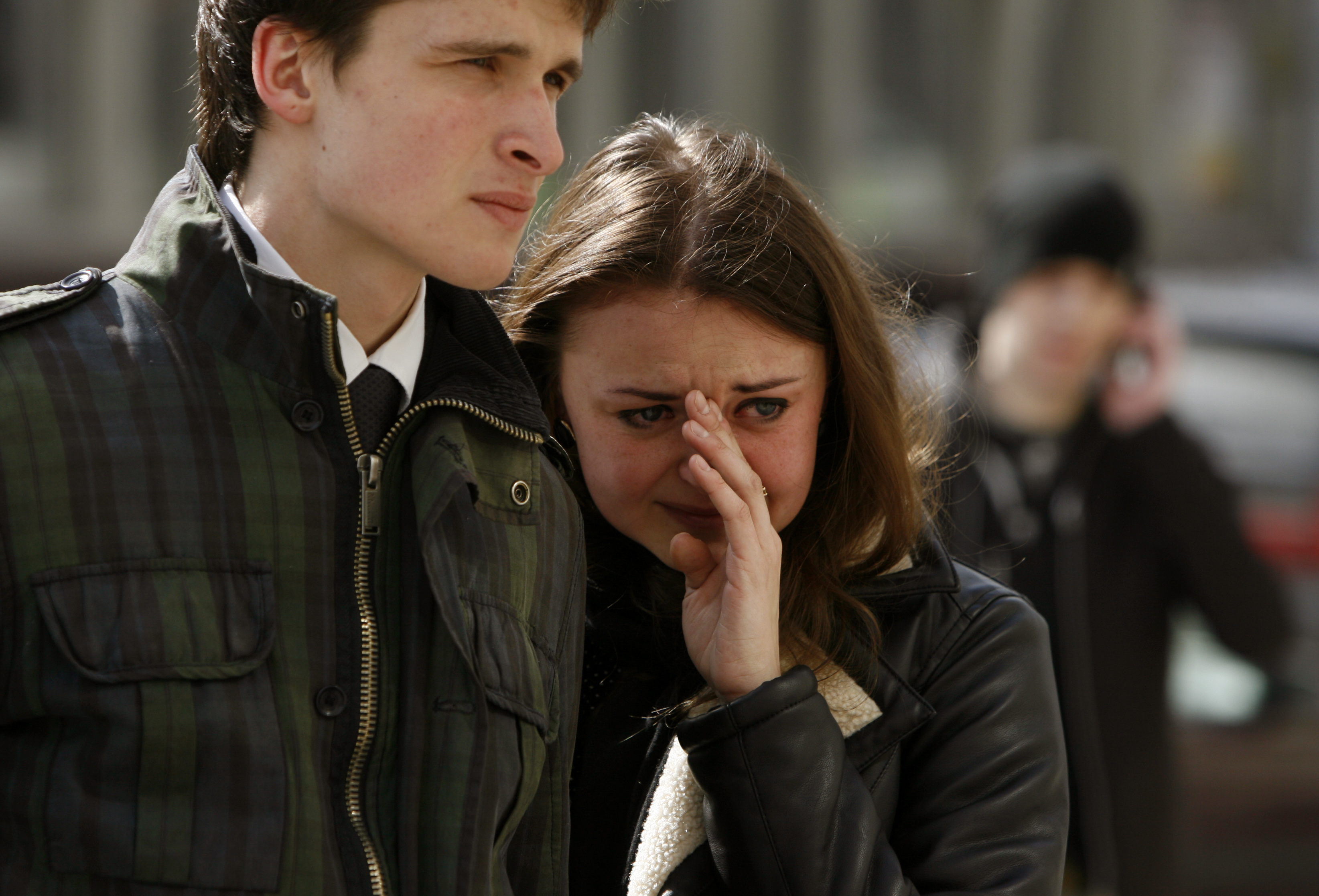
Assessing the Crisis in Belarus
Publication: Eurasia Daily Monitor Volume: 8 Issue: 89
By:

A tense situation prevails in the Belarusian capital of Minsk after a series of political and economic events placed unusual pressure on the Lukashenka regime. These include an unresolved terrorist attack on April 11, a new crackdown on opposition figures, a 20 percent rise in prices and a foreign debt of more than $28 billion. In his annual address in late April, President Alyaksandr Lukashenka stated that “psychologically sick people” had exploited his “free elections” and that he would take steps to destroy any “fifth column” (SB-Belarus’ Segodnya, April 22).
A public spat with Ukraine, hitherto a longtime friendly neighbor, demonstrated the president’s anxiety. It centered on the Kyiv Summit on the Safe and Innovative Use of Nuclear Energy held on the 25th anniversary of the Chernobyl disaster. Evidently under the erroneous impression that the President of the European Commission, Jose Manuel Barroso had refused to attend if an invitation was extended to the Belarusian president, Lukashenka lashed out at the “lousy” leadership of Ukraine. He also referred to Barroso as a “goat” (“kozyol” –a deeply insulting gangster term), and those who had imposed sanctions on Belarus as “scoundrels” (UNIAN, April 27; SB-Belarus’ Segodnya, April 27).
The terrorist attack on April 11, which resulted in 14 deaths and over 200 injuries to date, continues to elicit public concern. Charges have been made against two Belarusian men, both born in 1986 and evidently long-term school friends who live in Vitsebsk. Four well-known activists from this city were also arrested, but the charges were subsequently reduced to “hooliganism” (www.ucpb.org, April 20). The two men are charged under Article 289 of the Criminal Code with conspiracy to carry out a terrorist action to “destabilize the country, intimidate the population, and murder people” (www.naviny.by, April 29).
Yet, there is a notable lack of clarity about the charges. One of the “terrorists” is also accused of illegal weapons trading and one—it is unclear if it is the same person—with previous bomb attacks: in Vitsebsk in 2005 and in Minsk at the Independence Day commemoration on July 2 – 4, 2008. The KGB has reportedly uncovered a “testing area” for the explosive device in Vitsebsk. The charges carry the death penalty, which in Belarus’ case signifies a pistol shot to the head, and there is every indication that the executions will be carried out promptly, thus avoiding a public inquiry in a courtroom (www.naviny.by, April 29).
Understandably, many are dissatisfied with the investigation, and the Ministry of Information issued a second written warning to the opposition newspaper, Nasha Niva, for highlighting suspicions of state involvement in the attack. On May 11, the case against the newspaper will be heard officially and could result in its permanent closure. A similar admonition to the other major opposition newspaper, Narodnaya Volya, resulted in an accusation from the Political Council of the United Civic Party that the government is violating Article 33 of the constitution concerning the freedom of the press (Narodnaya Volya, May 1). The conclusion that the authorities have used the terrorist episode as a means to tighten state control is inescapable.
These events, however, distract from the main issue for the Belarusian government, which is the economic situation and recent talks with Russia concerning new loans. Pressure on the Belarusian currency has led to the banks’ agreement to trade the ruble outside its official exchange rate zone of just over BR 3,000 to the dollar, and an official devaluation to around BR 4,000 – 5,000 is anticipated within the coming weeks. Moscow has made clear, however, that Minsk must take more significant measures before the new loans ($2 billion from the Eurasian Economic Community’s Emergency Fund and $1 billion from Moscow) will be forthcoming. Aleksandr Surikov, Russian Ambassador to Belarus, stated plainly that one condition would be the sale of state assets (RIA Novosti, April 27).
Surikov had specifically in mind four highly profitable enterprises, which all have numerous subsidiaries: Belnefttekhnim, the oil technology company whose foreign assets were frozen by the United States in 2007, and which has been retargeted as part of U.S. sanctions following the crackdown in Minsk after the December 19, 2010 elections (FPS Research Center, January 31); Belaruskali, the potash company that last month sold off a package of 340,000 international shares (Belapan, April 11); Beltekheksport, which sells weapons and defense systems; and not least Traypl (Triple), self-described as “the president’s sports club,” which was founded in 1992 and has expanded into food products, petroleum, soft drinks, and industry. These companies have benefited from state largesse and subsidized energy imports; the president has maintained firm state control over them hitherto.
Lukashenka’s weakening control over the fate of his country undermines his heralded “social contract” with the public. Four years ago, Belarusian analyst Vitali Silitski commented that: “The real protest moods, the real protest potential will appear when we see a crisis of the existing social contract and, second, when this dissatisfaction and the protest moods acquire not only a pragmatic dimension but also one linked to values” (Radio Free Europe, March 16, 2007).
In 2007, such a situation appeared remote, but today it is increasingly close to reality: a moribund economic policy that is limited to requests for foreign loans to keep the state-run economy afloat; long queues for food products or for foreign currency; fear of homegrown terrorism; sanctions against the regime from the United States and (albeit on a lesser scale) the EU; and a neighbor anxious to link further loans to privatization of valuable assets, i.e., selling them directly to Russian companies.




